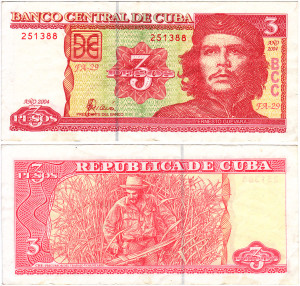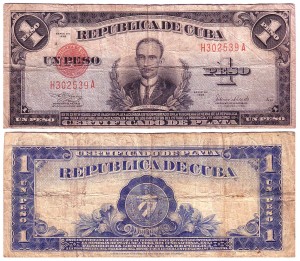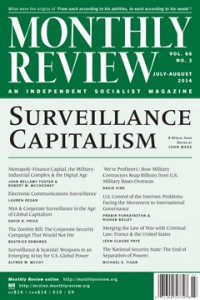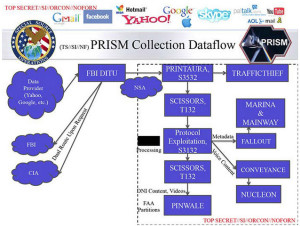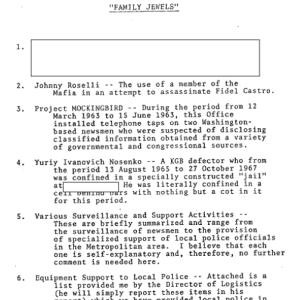Podcast: Play in new window | Download
U.S. Cuban Foreign Policy Changes Strategy: Normalizing Relations
Last year, in a sudden reversal of policy, the United States released the remaining three of the Cuban Five who were imprisoned for arrested in the United States while investigating Cuban exile groups accused of terrorism. The release was part of a prisoner exchange announced on when President Barack Obama ordered the restoration of diplomatic relations with Cuba, that has been isolated by a trade embargo for 54 years.
- When you’ve lived through 10 or 11 presidents and you’ve seen how bad our policy can be, and also the disappointment that people like me felt, since Obama had been elected, that almost nothing had been done for improving travel for Cuban Americans.
- The point at which I cried was when he said he was going to open an embassy in Havana, because once you got over the fact, the 3 political prisoners were coming home, that was sheer joy to realize along with the Cubans, they were crying too. They said we’ve finally been recognized as a government.
- I think it will be great for the Cuban artists.
- By the second day the people were saying we have to make sure we keep our culture.
- We have to be sure we keep our country.
- Cuba needs help with its infrastructure, it doesn’t need McDonald’s
- We still have the Helms-Burton law. We still have the embargo. I think our next fight is to get rid of the Helms-Burton law because that has done so much to strengthen the embargo.
- I think the Cubans will attempt to slow the flow of people from the United States to what they can manage.
- As we all know the infrastructure for tourism is not sufficient to take care of everyone. I’m surprised they didn’t recognize sooner.
- Clearly its because of US interest that we are doing this. We are not doing this to finally be nice to the Cuban revolution.
- cubaupdate.org / cubanartspace.net
Guest – Sandra Levinson, President and Executive Director of the Center for Cuban Studies. She was one of the Center’s founders in 1972. In 1991 Levinson spearheaded a lawsuit against the U.S. Treasury Department which resulted in legalizing the importation of original Cuban art. She is currently directing works at the Cuban Art Space, which she founded in 1999, to properly house and archive the thousands of posters, photographs and artworks which the Center has collected in the past 42 years
——
Electronic Communications Surveillance
In the recent Monthly Review, there’s an article titled Electronics Communications Surveillance written by attorney Lauren Regan. The article enumerates the various laws, acts and court cases that have led up to collecting information on millions of citizens such as phone, internet, and email habits, credit card and bank records. Nearly all of our on line activity is subject to being surveilled by the state. Lauren breaks it down from Electronic Communications Privacy Act of 1986, an extension of the 1968 Federal Wiretap Act, the FISA Act and on to the USA Patriot Act in 2001. The article is grouped into 3 areas, wiretaps and “electronic eavesdropping,” stored messages, and pen registers and trap-and-trace devices.
- The corporations that are engaged in gray intelligence use the term threat assessment.
- They look at activist communities even individuals and determine what level of threat they pose to the profit making components of their enterprise.
- I think its important that activists engage in their own threat assessment as well.
- In the documents (FOIA requests) we learned that the corporations themselves want to maintain clean hands. They don’t want to get caught spying on Mom and Pop holding a banner on a street corner.
- They devised this scheme where there is this security firm and public relations firm that kind of open up their own shop next door.
- They’re often former FBI agents for some of these big corporations and industries. They will collect the intelligence and its up to these PR firms to put it into these “terrorist bulletins.”
- For a long time we knew that corporations often hired by the government itself but also hired by big industry has been going through open source intelligence. So they’ve been monitoring our websites and social media and email lists and press releases and any other public documents they can get their hands on in their 8 hour paid day.
- They compile all this information into reports and then they sell it to police or other corporations or the government.
- They call them issue monitoring or trend analysis. In essence it is attempting to both legitimize and make profit of spying on political groups and political activists.
- In my experience its less important to focus on the name of the corporation because they’re so slippery and constantly changing their names.
- The animal rights movement has definitely been a significant target for this type of spying.
- We were working with a number of different organizations who were afraid. Who were thinking of stopping their campaigns, because they were concerned they were going to be put in prison, that they were going to be labeled terrorists.
- One of the campaigns out of Pennsylvania, consisted of teachers, doctors, people who were once a week going out on street corners and holding a banner opposing fracking and they found themselves in a terrorist bulletin.
- Especially when you’re talking about giant coal industries, and tar sands industries. These are gazillion dollar corporations. They’re multinational in scope. They’re working together within their industries which means they have more money and resources to put road blocks in front of regular public interest citizens.
- There are things that you can do to make life more difficult for those that wish to spy upon you.
- Thor and VPN are ways to use the internet with less ability to be tracked or surveyed.
- We represent activists for free and we coordinate legal teams around the country to insure that activists have high quality representation, when they choose to risk their liberty for a cause.
Guest – Lauren Regan, the founder and executive director of the Civil Liberties Defense Center (CLDC), where she serves as our staff attorney as well. Ms. Regan operates a public interest law firm, The Justice Law Group, specializing in constitutional law, civil rights, and criminal defense. She is a founding board member and past president of the Cascadia Wildlands. She also serves as a Lane County Teen Court judge, Oregon State Bar Leadership Fellow, National Lawyers Guild, Eugene co-chair, and volunteers hundreds of hours a year to various progressive causes.
—–
The Family Jewels: The CIA, Secrecy and Presidential Power
The surveillance and torture programs conducted by agents and contractors of the United States Central Intelligence Agency has a long sordid past. One of the first revelations of the CIA’s illegal activities released to the public was released in December 1974 by the New York Times. Details of surveillance, eavesdropping, detention and interrogation shocked readers. It was also became the foundation for deeper research by our next guest John Prados, a senior fellow of the National Security Archive in Washington, DC. He’s the author of the book The Family Jewels: The CIA, Secrecy and Presidential Power, where Prados recounts secret operations and how Vice President Richard Cheney played a leading role in intelligence abuses. He joins us today to talk about the Senate Select Committee on Intelligence Torture Report and the deeper connections based on his research.
John Prados:
- A semi-notorious document that was known as the family jewels – this was a record of CIA abuses of the 1950s, 60s, and 70s, when they were spying on American citizens. In fact the revelation was so explosive at that time it lead to multiple investigations of the CIA by the Church Committee, the Pike Committee.
- I think that the CIA has a preoccupation with image. The episode of the “family jewels” is typical because at the time the intelligence agency’s director was Michael Hayden. Hayden, simultaneous with the release of the document gave a speech taking credit for thinking of releasing the “family jewels” themselves.
- In my book The Family Jewels I have a couple of chapters that documents this kind of activity.
- We have been waiting 2 years for the appearance of this report.
- If you look at the website that’s maintained by former director Hayden, and former director Porter Goss and former director George Tenant, you will see that they posted on their website declassified CIA documents, much more lightly redacted that were released as long ago as last summer.
- These are the first documents I have seen containing direct Whitehouse action and activity on the torture issue.
- The best piece of this relates to early 2004, where there was the United Nations international day of support for victims of torture. Tenant sends a memo to Condi Rice and requests that the Whitehouse reconfirm Bush Administration support for the torture program.
- When that was not immediately forthcoming, they did this again.
- CIASavesLives.com
- These things were released as part of the argument that was made by former intelligence officials that torture was approved and legal.
- Not just damage control but the perpetrators, the agency officials responsible for this program,they know its not legal, they know its morally reprehensible. They’re operating under the fig leaf of this presidential authority and this mumbo jumbo Department of Justice legal memo network.
- If there’s a breath of questioning it all of a sudden, they’re not covered anymore. That’s the reason for the sensitivity and the reason why the CIA suddenly erupted in this effort to reconfirm these authorities.
- If you delete material from the documents in such a way that the public can’t tell that the material the CIA got was useful, or misleading everybody.
- The Senate report is so important because it shows on all of these cases, they took the ones twenty ones, the CIA most claims they got information for them. The report shows that in every one of those cases in fact they were getting information without resorting to the torture.
- I think we have a challenge. I think we need to work to make a wedge for accountability in this country. I do think Americans are shamed and embarrassed by this behavior. This is not what the United States is about.
Guest- John Prados is an author and analyst of national security based in Washington, DC. He is the author of more than twenty books and many articles on topics of current importance, presidential studies, international security; and diplomatic, intelligence, or military history. His current book is The Family Jewels: The CIA, Secrecy, and Presidential Power (University of Texas Press). Newly appearing in paperback are Islands of Destiny: The Solomons Campaign and the Eclipse of the Rising Sun. In addition Prados is author of titles on national security, the American presidency, and other subjects including Vietnam, the Soviet Union, and World War II. He is also a noted designer of boardgames on military strategy, intelligence, and diplomacy.
—————————————————————–
Please help support Law and Disorder by clicking on Fractured Atlas graphic (link is fixed). This radio show is now a sponsored project of Fractured Atlas, a non-profit arts service organization. Contributions for the charitable purposes of Law and Disorder must be made payable to Fractured Atlas only and are tax-deductible to the extent permitted by law. You can donate as little as 5.00 a month.
